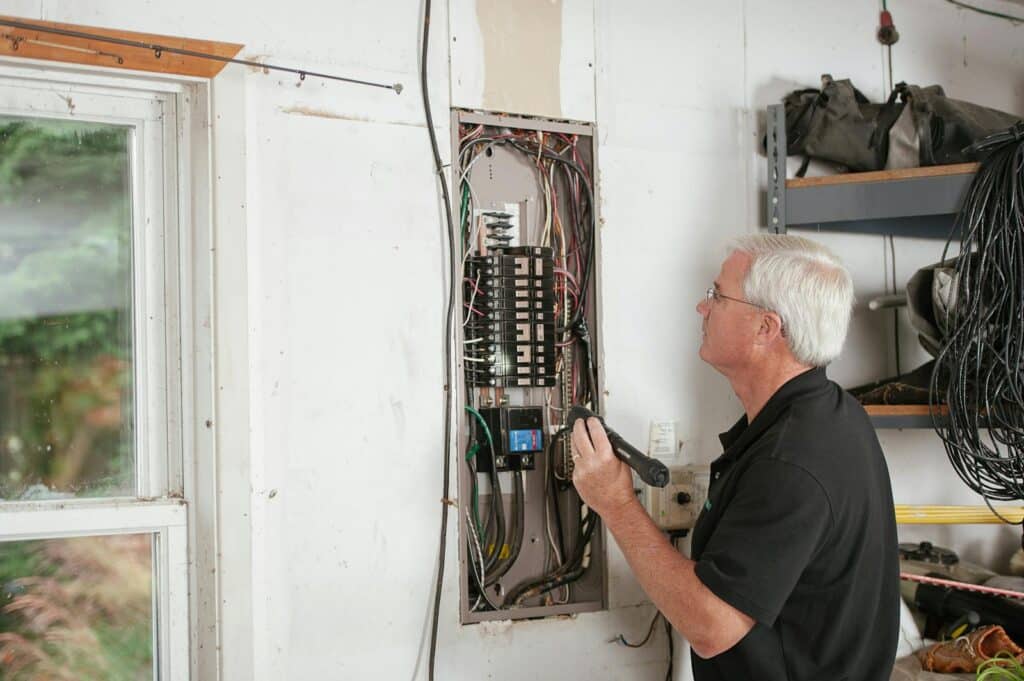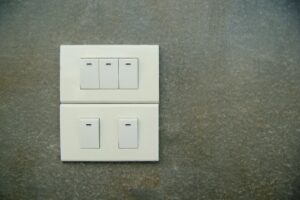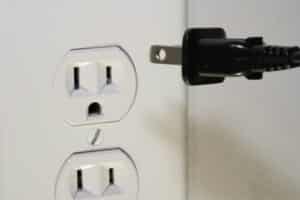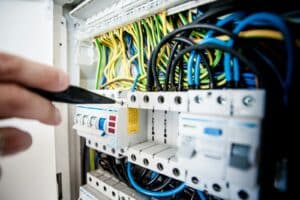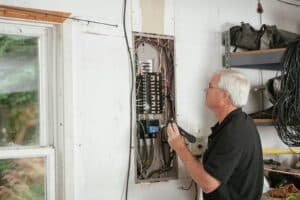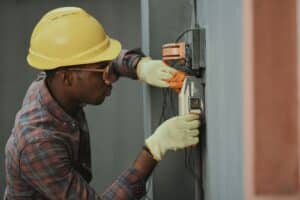Prepare Your Home for an Electrician’s Visit by clearing access, securing pets, and documenting issues to ensure a smooth, efficient, and safe service. These steps help the electrician diagnose problems faster and complete work with minimal disruption.
1. Clear Access to Work Areas
Ensure clear, unobstructed access to your switchboard, power points, light fittings, and any other areas where work is needed. Move furniture, boxes, or decorations that might be in the way. Good access reduces billable time on site.
2. Secure Pets and Inform Occupants
Keep pets safely contained away from the work area. Inform all household members about the electrician’s visit and any potential power interruptions to avoid surprises. Post a quick note on the switchboard if circuits will be isolated.
3. Document Electrical Issues
Make a list of all electrical problems you’ve noticed, including when they occur, any sounds or smells, and which appliances or circuits are affected. This helps the electrician with diagnosis. Include photos or short videos of intermittent faults.
4. Unplug Sensitive Electronics
If possible, unplug sensitive electronics like computers, TVs, and gaming consoles from outlets on the circuits being worked on to protect them from potential surges during testing or power cycling. Use surge-protected power boards in future.
5. Provide Site Information
Have any previous electrical reports, renovation plans, or details about recent appliance installations ready. This background information can be valuable for the electrician. Note roof access, ceiling heights, or restricted areas in advance.
Pro Tip
To prepare your home for an electrician’s visit, take photos or videos of intermittent issues (e.g., flickering lights, tripping breakers) to show the electrician, as problems don’t always occur on demand.

